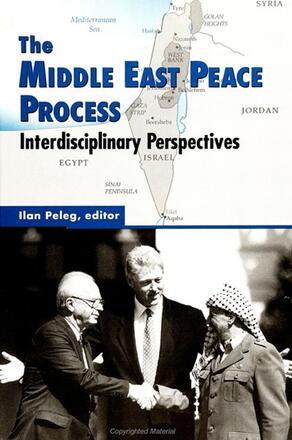
The Middle East Peace Process
Interdisciplinary Perspectives
Alternative formats available from:
A comprehensive, interdisciplinary look at the history of and complex issues surrounding the peace process in the Middle East.
Description
This volume offers a series of focused analyses of various aspects of the peace process. This interdisciplinary book includes insights developed by scholars in such diverse disciplines as anthropology, economics, history, law, political science, social psychology, and international relations. Although the book is strongest in dealing with Israel's political behavior, it also focuses specifically on the Palestinians and on Jordan. The contributors combine the perspective of the last few years; the insights of a variety of social science disciplines, making the complexity of the Middle East situation more manageable and penetrable; and offer a commitment to an analysis which is relatively detached from everyday politics and non-normative in tone and in essence.
Contributors include Myron J. Aronoff, Pierre M. Atlas, Mordechai Bar-On, Gad Barzilai, Neil Caplan, Stuart A. Cohen, JoAnn DiGeorgio-Lutz, Laura Zittrain Eisenberg, Tamar S. Hermann, Aharon Klieman, Guy Mundlak, Ilan Peleg, Curtis R. Ryan, Ofira Seliktar, Daphne Tsimhoni, and Ephraim Yuchtman-Yaar.
Ilan Peleg is Charles A. Dana Professor of Social Science at Lafayette College and President of the Association for Israel Studies. He has also written Begin's Foreign Policy, 1977-1983: Israel's Move to the Right and Human Rights in the West Bank and Gaza.
Reviews
"The book is true to its title and preface: it brings together a truly interdisciplinary group of scholars who approach the peace process from a variety of disciplines." — Kevin Avruch, George Mason University
"Unlike many books based on collections of articles, this one contains an interesting diversity around a credible theme. Although the authors represent different disciplines and perspectives, they maintain consistency with the theme of the book. Furthermore, unlike many collections, these articles are not merely of passing interest or relevance, but will remain of value to scholars for some time." — Don Peretz, Binghamton University